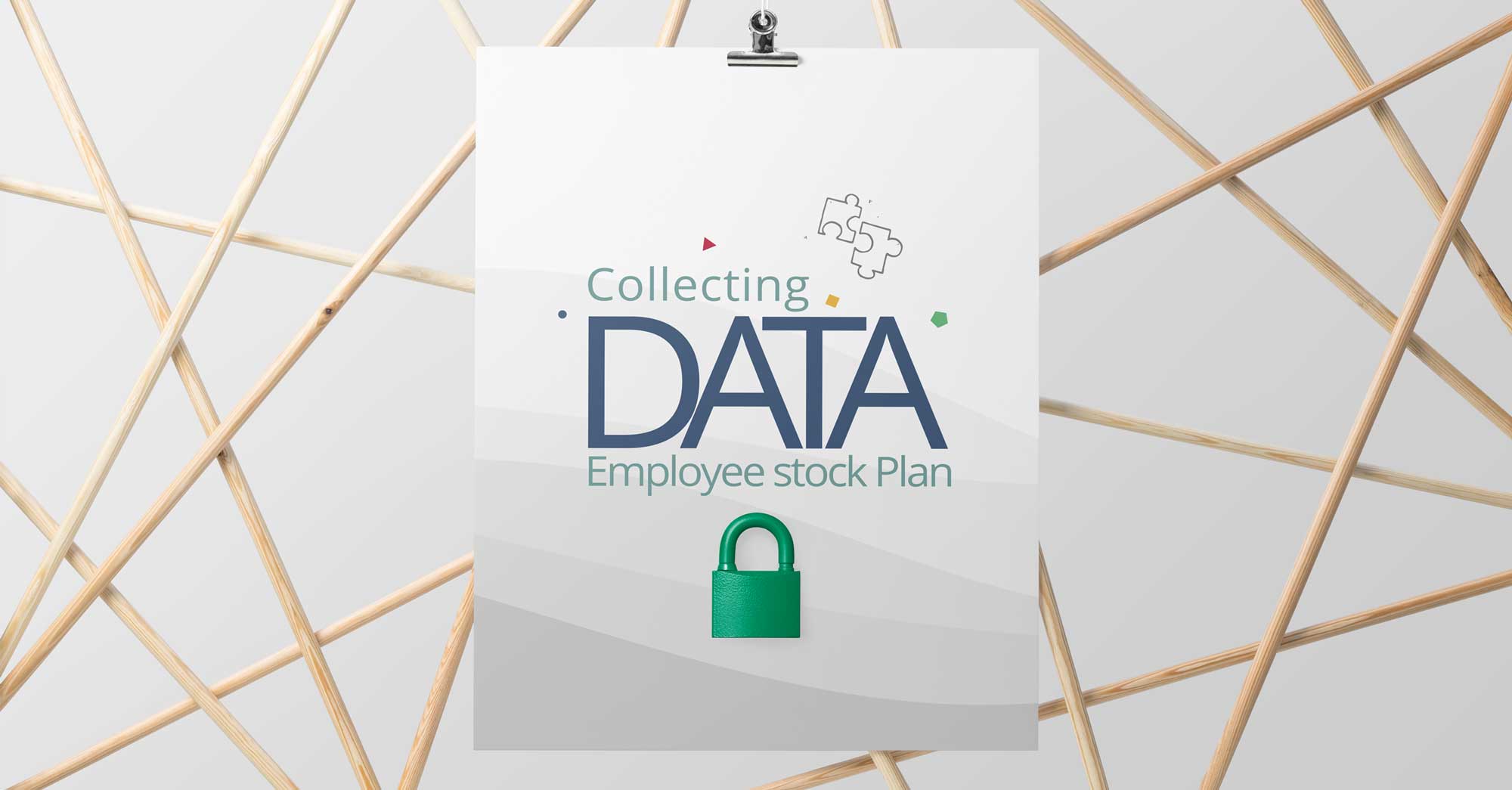Are you in charge of your company’s equity plans, and unsure about what information you need to collect from your participants? It’s hugely important to gather the correct information from the start so that your plan runs smoothly.
Not only for compliance and legal purposes but you also need to provide your finance, payroll, and HR groups with employee-specific data for key equity reporting and processing.
So, what data should you collect?
1. Notification from the participant that they are accepting or declining their equity grant offer
If you’re awarding grants to participants they need to accept those grants and the associated terms and conditions of the grants, or at the very least acknowledge that they are the recipient of a grant. Typically participants will accept their option grants or restricted awards. On rare occasions, it may not be tax efficient for them to accept a grant and this is where a facility to decline the grant is necessary.
More importantly, there is the practical nature of communicating the details of a new grant to a participant: the value of the grant, information such as vesting, and other important terms. Obtaining confirmation from the participant helps validate the concept of granting equity. It also ensures your participants are engaged and appreciate the benefits that their Company’s Share Plan is providing them.
2. Tax elections for ongoing equity transaction events
If your company has numerous equity plans and participants hold several grants and awards, the chances are that you are going to have multiple transactions going on at any one time. When participants are transacting equity you are going to have a tax event. Most plans offer the participants a choice of ways to pay their taxes (tax elections).
If participants have an upcoming Restricted Stock Vest and Release, they need to be able to select if they want to sell or swap shares to cover their tax liability. Otherwise, they will have to cover the cost of those taxes.
The same applies with option exercises: participants can elect which tax payment type to use. Elections may differ from country to country, or even might be different by plan but these are standard elections that all companies should offer their participants.
The calculation of equity compensation taxes has become increasingly complicated due to the range of tax rates, cut-offs, and bands in operation. The increased mobility of multinational and multi-state workforces also adds another level of complexity, variation, and work for many companies’ tax calculations today.
3. Ensure you have collected W-8BENs and W-9s forms for your plan participants
When your participants are selling shares from their option exercises and restricted stock releases they typically need to have a W-8BEN (non-US taxpayers) or W-9 (US taxpayers) form on file with the associated brokerage firm before the trade can be processed. This prevents additional tax withholding from being taken from sale proceeds.
The responsibility for this form can vary – it can be a brokerage firm, the employing company, or the plan administrators, who may be a third party. More often than not, it’s a combined effort, but ultimately the W-8BEN, W-9, or some other tax validation form will be required as part of the ‘Know Your Client’ process before plan participants can trade.
4. Annual self-certification is becoming more common for participants
Participants who give notice of resignation, or leave the company voluntarily before part or all of their award vests, may continue to receive their equity.
However, if they participate in a competitive activity (including accepting an offer of employment with a competitor) they will forfeit their award.
Participants typically need to complete and return a Self-Certification Form within a month of giving notice of resignation or voluntary retirement, and may also need to make annual Self-Certification declarations that they have not engaged in competitive activity.
5. Registration or enrolment in broad-based equity plans
More companies are offering ‘Broad-Based Purchase Plans’ in which participants must register or enroll to participate in the plan. This involves the participant signing up for the plan. In the case of a purchase plan, they must select how much they want to contribute on an ongoing (or one-off basis).
Usually, the company will have details of all the participants they want to reach, but in some cases, they won’t. This tends to happen for large global companies with participants in all corners of the globe.
It also presents a communication challenge to ensure every participant has their applicable plan communicated effectively to them, and that all participants have an equal opportunity to participate and invest in their company.
These are just some examples of the standard information components that companies and equity plan managers need to collect from their participants.
However, there are other areas where companies are starting to use technology to collect other information from participants. Further examples include:
6. Bonus election distribution
Many companies allow participants to dictate how they want to take their bonus i.e. in cash or equity. In some cases, there is a further drill down: what type of equity would you like to take i.e., 50% stock option, 50% restricted stock, etc.
7. AGM, shareholder and ad-hoc voting
Companies have voting decisions that need to be made by their Shareholders. If a Company is offering equity compensation to participants, then those participants become shareholders with various voting rights. Voting matters may range from company resolutions to determining who sits on the board of directors.
For Public Companies this is typically handled by the Registrar or Transfer Agent. For Private Companies, this has to be done by the team that manages the Equity Compensation Plans, as they have the shareholding data for each Participant, and they need to collage how each person wants to vote.
8. Employee satisfaction surveys
Surveys are becoming more popular with companies as a way to gauge the impact of their equity plans on participants. If you are unsure about any aspect of your Plan, why not get input from your participants by asking them for their feedback?
9. Share distribution and subscription offers
Companies – particularly early private ones – will be doing new rounds of investments, share distributions, and offerings on a regular basis. This involves communicating with investors and shareholders to determine if they want to invest in the company and the level at which they wish to invest.
10. Key demographic data – e.g. residency and citizenship
Accurate reporting is important in every company, and if you have a mobile workforce it is critical that have the latest data related to your participants to run reports on residency, citizenship, or other key demographic fields. Collecting this data from your participants is critical to your reporting success.
11. Payment preferences
If you are granting equity and cash-based awards like CSARs, you will have to pay money out to your participants at some future point.
Likewise, if your company pays cash dividends, you will need to pay monies to participant shareholders. It is critical that you have the correct payment details and preferences.
If it is delivered via wire transfer, then you must have valid bank account information. Participants may also want their sale proceeds to go to different bank accounts for sale versus cash dividend payments, so it is important to understand that flexibility must be built into that data.
How to collect information from your participants?
Now that you know everything you may need from your participants, the next question is how do you collect it? To avoid enormous manual administration and large printing and postage workload, you need to collect it electronically, using equity administration software.
The benefits of electronic data collection are multifold:
- Lower costs in the long run due to reduced mailing and paper costs, as well as the administrative burden of manually recording responses
- Higher response rates, as participants are more likely to respond electronically
- Full audit reports for both the administrator and the employee
- The administrator has access to the full employee listings in multi report format functionality
- Follow up facility – it’s much more effective to send a reminder via email or SMS than via mail
- Increased ability to collect data at short notice from the participant.
Request a free demo
If you’d like to see for yourself how the Global Shares stock plan administration software can help your company, book a one-on-one, no-obligation consultation today and we’ll demonstrate our award-winning software.
This publication contains general information only and J.P. Morgan Workplace Solutions is not, through this article, issuing any advice, be it legal, financial, tax-related, business-related, professional or other. J.P. Morgan Workplace Solutions’ Insights is not a substitute for professional advice and should not be used as such. J.P. Morgan Workplace Solutions does not assume any liability for reliance on the information provided herein.



